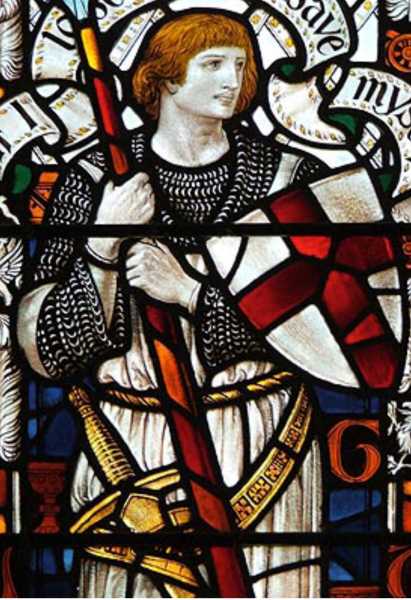“The noble image of the just and upright warrior, haloed with virgin purity; whose aim is rather sacrifice than victory, blood offered than blood shed”. (Henri Daniel-Rops, quoted in William J. Slattery, Heroism and Genius)
In order to understand how the Basque soldier Inigo became the saint and founder Ignatius it is necessary to understand the ideal that like the North Star guided his childhood, youth and adulthood: chivalry.
Chivalry is quintessentially Catholic as becomes evident from a study of its historical origins. It was formed during the Middle Ages between circa A.D. 700 and 1100 in a struggle to vanquish a society in which, as a preacher of the time remarked, “men have claws and live with the wild beasts”. Neither warriorhood nor war knew the meaning of restraint among the Germanic tribes, Magyars and Vikings; neither for that matter were the “civilized” Romans much better.
It is thanks to the Church’s herculean struggle by her sacraments, prayer, rites, laws, discipline and asceticism—yes, and also by condemnations and excommunications ‒ that she eventually forged a new ideal of soldierhood. It was the paradigm of the man who fights for justice, in justice, thus turning soldierhood into a pathway for achieving Christlikeness.
Priests imbued the ceremony of admission to knighthood with a Christian mystique in which through unforgettable rites charged with mystic splendor they etched the ideal on the soul. Candidates thus were fully aware that good health, physical strength, and expertise in the skills of warfare were not enough to be a true knight.
He heard from the Church’s lips the call to self-conquest before conquest, to “protect the weak, defenseless and helpless, and to fight for the general welfare of all”—unto heroism. He learned that his life had to be a relentless quest to subject his passions to the spirit; that chivalry was the sure route along which masculinity could be purified through the sacraments, prayer, and the cardinal virtues of wise judgment, self-conquest, courage and justice. An unbending sense of right and wrong anchored in the unchanging precepts of the Natural Law interpreted by the guardian of that law, the Church, had to mark his actions.

